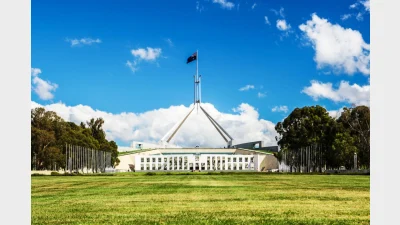Will the Govt accept tweaks to Budget super changes?



Actuarial research house, Rice Warner, has pointed to the likelihood of tweaks being made to the Federal Budget superannuation changes after the Federal Election.
In an analysis of the Budget changes, Rice Warner has argued that while baby boomers have been heard to "bleat" about the changes, most would be largely immune.
"Even those who are impacted are still well off," the analysis said.
"Consider a hypothetical retired couple aged 65 with $6 million in superannuation and $1 million in private investments. As long as the assets are split equally between the partners, they can earn $420,000 and pay less tax ($18,646) than someone earning $80,000 — who would pay $500 more tax."
The analysis said that, further, the hypothetical couple could now make additional concessional contributions until they are aged 74.
"Even though they are no longer working, they can make contributions out of their investment income. Given the amount of money they have in super, they have probably already used up their non-concessional cap or they could continue adding to that too. Overall, this couple is still very well off from superannuation."
The company's analysis said the example it had cited might represent an extreme case, but most baby boomers had done well out of generous tax concessions and three decades of real investment returns especially the doubling of real house prices.
"All but the wealthy are relatively unaffected by the Budget changes to superannuation," it said.
Looking at the various Budget changes, Rice Warner said that individually they made sense, but collectively they might prove onerous in some circumstances.
"While nothing will be said until after the election, we expect there could be some tweaking to eliminate unexpected consequences," it said.
"The lifetime cap on non-concessional contributions could be amended for those caught by re-contribution strategies. Perhaps the contributions made in the period up to 30 June 2016 could be deemed to be capped at $250,000 to allow everyone to make at least $250,000 in future."
"The ‘catch-up' for five years is limited to those with an account under $500,000. That balance could be increased to $750,000 without much fiscal damage."
"Perhaps we could allow a one-off transfer of super of up to (say) $500,000 from a spouse to their partner to equalise their account balances. This would allow a couple to target $3.2 million of pension benefits together. Ironically, the only way to split super at present is on divorce!"
Recommended for you
ASFA has launched a central online hub to help super funds, employers and service providers prepare for Payday Super reforms.
The Super Members Council is calling on the government and regulators to impose additional safeguards to prevent superannuation switching harm and has put forward multiple suggestions for improvements.
The Assistant Treasurer has reaffirmed the government’s commitment to strengthening retirement outcomes, consumer protections and cyber resilience in superannuation.
The industry super fund has advanced reconciliation efforts with a new initiative focused on improving outcomes for First Nations members.










Yes, thanks to the $5000 lifetime non-concessional super cap, I will need to run my business until I'm 110, to get $1.6 million into my super fund. No point retiring, is there?